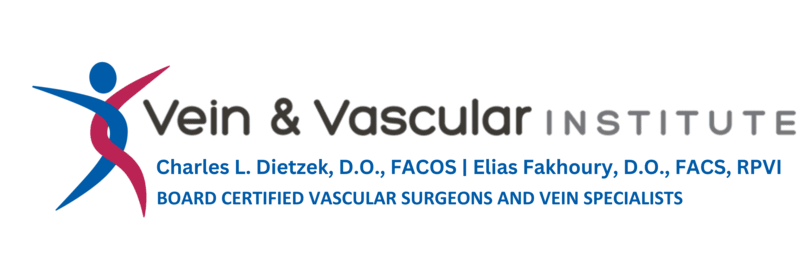Deep vein thrombosis, or DVT, is a serious health condition that could put your life at risk without prompt treatment. Unfortunately, these deep blood clots and their complications could happen to anyone, at any time, and with very little warning. Only by watching for the key symptoms and reporting them to your vein specialist can you prevent severe illness or even death. Fortunately, you can rely on this guide to help you learn all you need to know about DVT, pulmonary embolisms, and your life at risk.
Table of Contents
ToggleSymptoms and Signs of DVT
DVT often occurs after surgery, trauma, or infections leave veins damaged, so blood doesn’t flow properly through the right channels. Then, blood clots develop as the blood stagnates and thickens up.
When that happens, you may notice the following signs and symptoms of DVT:
- Swelling and warmth in one leg
- Cramping pain or soreness in the calf
- Skin discoloration along the affected leg
Sometimes, deep vein thrombosis doesn’t cause any symptoms at all, leaving you unaware of the danger ahead.
Why Blood Clots are Dangerous
As the blood clots silently develop in the veins deep under your skin, they could potentially break loose and cause a pulmonary embolism, or PE. This life-threatening condition occurs as the blood clots block the flow of blood through the lungs. In no time flat, the blocked passages leave little oxygen in your bloodstream and result in lung tissue damage.
With the exception of prosthetic heart valves, DVT does not directly damage the heart valve, but the lack of oxygen can irreversibly damage the heart muscle. You could then suffer arrhythmia, heart attack, or even experience heart failure, resulting in death.
How Common is DVT in America
In the United States, deep vein thrombosis occurs in more than 900,000 people each year. Of those individuals, up to 100,000 die due to the resulting pulmonary embolism. Oftentimes, even with a prompt call to 911, PE treatment comes too late to restore oxygen to vital tissues and halt the lung tissue damage.
Treatments for Deep Vein Thrombosis
When you meet our vein physicians in Vineland, Voorhees, Sewell and Lumberton New Jersey, they will create a personalized treatment plan for your deep vein thrombosis. Depending on the severity of the condition, they may use any, or all, of the following DVT care techniques.
Anticoagulants (Blood Thinners)
Upon using an exam and ultrasound to detect DVT, vein specialists will prescribe blood thinners to help stop the development of blood clots. Depending on the type prescribed, the blood thinners either stop the blood from coagulating or keep the platelets from sticking together. Your body can then start to dissolve the existing blood clots without having to deal with additional ones developing in the meantime.
Compression Stockings & Leg Elevation
To help your body dissolve the blood clots, your vein doctor will have you wear compression stockings and elevate your affected leg above heart level. Both of these techniques help improve blood flow, so your body can work on naturally eliminating the clots.
Vein Surgery Treatments
If blood thinners, compression stockings, and leg elevation do not resolve the DVT, then you may need to have surgery to remove the blood clots. The surgical procedure may also eliminate the damaged veins, allowing your body to reroute the blood flow through healthier channels.
Through each stage of treatment, your vein physicians will keep a close eye on your recovery. If they need to make any adjustments to their approach, they will let you know what to expect every step of the way.
Contact Us at Vein & Vascular
If you’re experiencing any signs and symptoms of DVT, schedule a consult at Vein & Vascular Institute with a call to 856-309-8346. We will help you get the right level of treatment right away, reducing your risk of complications, including pulmonary embolism. You can always count on our team for DVT treatment and ongoing care for your vascular system, so please feel free to call anytime.
